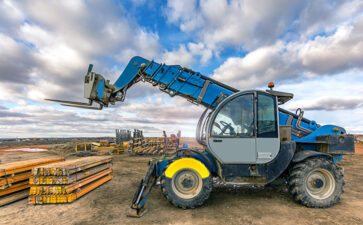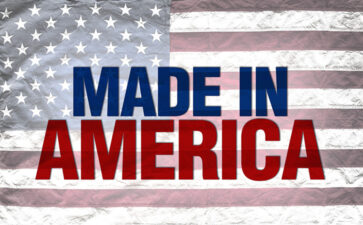Building a Safer, Greener, and More Productive Future with the TyrFil™ Advantage
The construction industry is at a crossroads. In an environment where every delay can push a project over budget and behind schedule, businesses must maximize uptime while keeping safety and sustainability at the forefront. With the increasing demands for more efficient operations and a greener future, traditional tire technology—whether air-filled or solid—can often be more of a liability than an asset.
That’s where TyrFil™ comes in. Developed by Carlisle TyrFil, this innovative polyurethane flatproofing solution transforms the performance of heavy construction equipment. Whether you’re concerned about unplanned downtime, worker safety, or reducing your environmental footprint, TyrFil offers a compelling alternative to conventional tires. TyrFil flatproofing technology is revolutionizing construction site operations by ensuring more uptime, increasing safety for workers, and supporting environmentally conscious business practices.
Maximizing Uptime: How Polyurethane Flatproofing Increases Construction Site Efficiency
Time is money in construction, and nothing disrupts project timelines more than unanticipated equipment failures. One of the most common causes of these disruptions? Flat tires. On busy construction sites, sharp debris such as nails, glass, and rebar can easily puncture pneumatic tires, bringing machinery to a standstill. Each flat tire leads to costly emergency repairs, lost productivity, and frustrating delays that compound quickly.
TyrFil flatproofing provides a simple yet powerful solution. By replacing air with a durable polyurethane elastomer that cures into a solid core, TyrFil eliminates the risk of flat tires entirely. This puncture-proof system enables construction vehicles to keep moving without the constant worry of tire-related downtime. Whether operating on rugged terrains or navigating debris-laden work areas, equipment outfitted with TyrFil can maintain consistent performance, keeping projects on track.
The Cost of Downtime on Construction Sites
When machinery is sidelined by tire failures, the effects can ripple across an entire construction project. Even a single flat tire can lead to hours—or even days—of downtime as repairs are conducted or replacement tires are sourced. Equipment rentals often continue to rack up costs while sitting idle, and the construction team is left scrambling to adjust schedules, impacting the project’s timeline and budget.
By using TyrFil flatproofing, construction companies can significantly reduce the likelihood of such delays. With flatproofed tires that are immune to punctures, crews can work more efficiently and minimize disruptions. The long-term savings in both time and money make TyrFil a cost-effective solution for any construction project.
Key Benefits of TyrFil Flatproofing for Construction:
- Zero flat tires: No more unscheduled stops for tire punctures or blowouts, resulting in continuous operations and fewer disruptions.
- Increased productivity: With equipment running smoothly and efficiently, projects can stay on schedule and reduce the costs associated with delays.
- Longer tire life: Polyurethane-filled tires last significantly longer than air-filled tires, reducing the frequency of replacements and saving on maintenance costs.
- Greater vehicle performance: By offering better traction and stability on uneven surfaces, TyrFil flatproofed tires help equipment operators maneuver with confidence, improving both efficiency and safety on the job site.
Reducing Worker Fatigue and Injury: The Impact of G-Force Vibration on Construction Equipment Operators
Construction site safety extends far beyond preventing tire-related delays. Worker health and safety is paramount, and one often overlooked aspect is the physical toll that equipment vibration can take on operators. Known as Whole Body Vibration (WBV), this issue is a direct result of the G-force impact transmitted through solid aperture tires. WBV can cause severe health issues, including lower back pain, joint pain, fatigue, and long-term musculoskeletal disorders.
TyrFil flatproofing plays a crucial role in reducing the G-force vibrations experienced by operators. Unlike solid tires, which transmit harsh shocks from the road or worksite terrain directly to the vehicle and its driver, TyrFil acts as a shock absorber, smoothing out the ride. This results in less wear and tear on both the equipment and the operator, ensuring a safer and more comfortable working environment.
Key Benefits of TyrFil for Worker Safety:
- Reduction of G-force vibration: TyrFil’s ability to absorb shocks reduces the negative effects of WBV, helping operators stay healthier and more focused.
- Increased comfort: A smoother ride minimizes fatigue, enabling operators to work longer shifts without feeling the physical strain typically caused by solid tires.
- Improved job satisfaction and retention: Healthier and more comfortable operators are more likely to perform at their best and stay with their employer longer, reducing turnover and improving overall job site productivity.
Building Greener: How Sustainable Tire Technology Is Shaping the Future of Construction Equipment
Sustainability is no longer an option—it’s a mandate for many construction companies looking to reduce their environmental impact. Solid tires, while puncture-proof, create a significant amount of waste when they are eventually discarded. They are not easily recyclable, and disposing of them contributes to the growing problem of landfill overfill and tire waste.
In contrast, TyrFil’s polyurethane flatproofing system is not only durable but also eco-friendly. TyrFil tires can be recycled and repurposed, reducing the environmental impact of tire disposal. In addition, Carlisle TyrFil’s recycling technology allows users to mix virgin polyurethane with recycled materials, further lowering the use of petrochemicals and promoting a greener future for the industry.
Environmental Benefits of TyrFil:
- Reduced carbon footprint: TyrFil requires fewer resources to produce and can be recycled, minimizing the environmental impact compared to solid tires.
- Recycling options: Through Carlisle’s advanced recycling systems, companies can reuse materials, cutting down on waste and landfill contributions.
- Supporting sustainable business practices: By adopting TyrFil flatproofing, companies align themselves with sustainability goals, demonstrating their commitment to reducing environmental impact.
The Future of Construction Tire Technology
In today’s competitive construction landscape, every advantage counts. By choosing TyrFil polyurethane flatproofing, companies can not only eliminate costly tire-related downtime but also improve worker safety and contribute to a more sustainable future. From reducing the risk of WBV to cutting down on tire waste, TyrFil is the smarter, greener choice for the modern construction industry.
To learn more about how TyrFil flatproofing can help your construction business maximize efficiency, improve safety, and meet sustainability goals, visit Carlisle TyrFil’s website.


